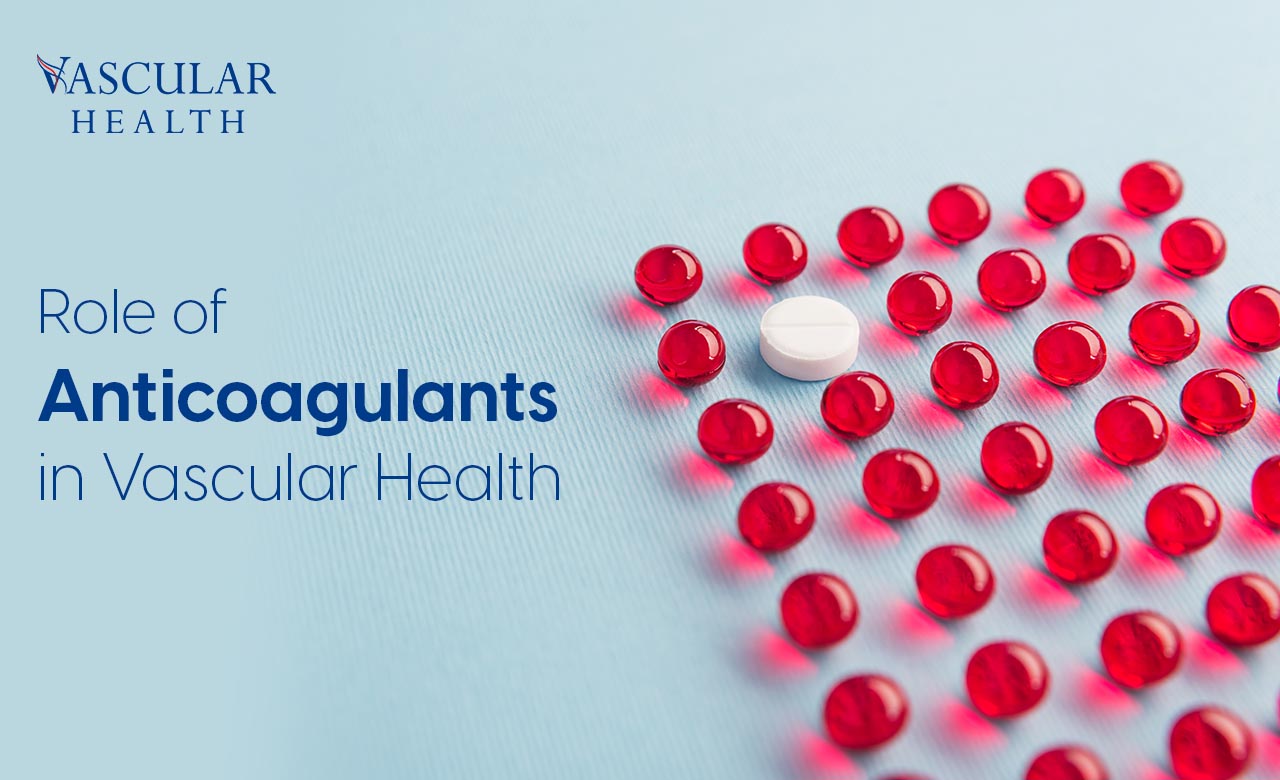Anticoagulants, also known as blood thinners, help remove blot clots formed abnormally. Blood clots can lead to severe cardiovascular disorders such as deep vein thrombosis (DVT), stroke, or cardiac arrest. Anticoagulants play a vital role in maintaining good vascular health. These work by inhibiting the components of the blood clotting cascade. Blood clots help repair injuries, but abnormal production of blood clots without a cause can lead to several vascular disorders. Anticoagulants help to manage such blood clotting problems and regulate smooth blood flow.
Types & Roles of Anticoagulants
Vitamin K Antagonists – VKAs
Warfarin is the most common vitamin K antagonist. It works by inhibiting vitamin K, which is an essential component of the clotting cascade. Vitamin K aids in the synthesis of clotting factors, and warfarin prevents clotting by inhibiting it. It requires regular blood monitoring.
Daily Oral Anticoagulants – DOACs
It is a new class of drugs, which includes medications like dabigatran, rivaroxaban, etc. Its predictable effects, minimal dietary restrictions, and monitoring make this class a favourable treatment option.
Heparin
Due to their rapid effects, unfractionated heparin (UFH) and low molecular weight heparin (LMWH) are generally used in hospital settings. They work by activating antithrombin III, which plays a key role in inhibiting thrombin and factor Xa—significant components of the clotting mechanism.
Clinical Applications
Atrial Fibrillation: Atrial fibrillation induces a potential risk of stroke due to the formation of clots in the atria. Using anticoagulants can be beneficial in minimizing the risk.
Venous Thromboembolism – VTE: Venous thromboembolism is a significant risk factor for deep vein thrombosis (DVT) and pulmonary embolism (PE). Anticoagulants are used as a treatment option to manage VTE and to reduce the associated risk.
Post-surgical Prophylaxis: Patients undergoing major orthopedic surgeries such as hip or knee replacement surgery are more prone to VTE. Anticoagulants are used prophylactically to prevent the formation of clots.
Mechanical Heart Valves: Individuals having mechanical heart valves are susceptible to thromboembolism and require lifelong anticoagulant therapy.
Benefits
- Prevention of thromboembolic events
- Improved quality of life
- Increased survival rate
Anticoagulants are indispensable in modern medicine. They provide life-saving benefits by treating and preventing blood clots. However, as a treatment option, anticoagulants also possess potential risks, so it is crucial to take them according to your healthcare advisor.




